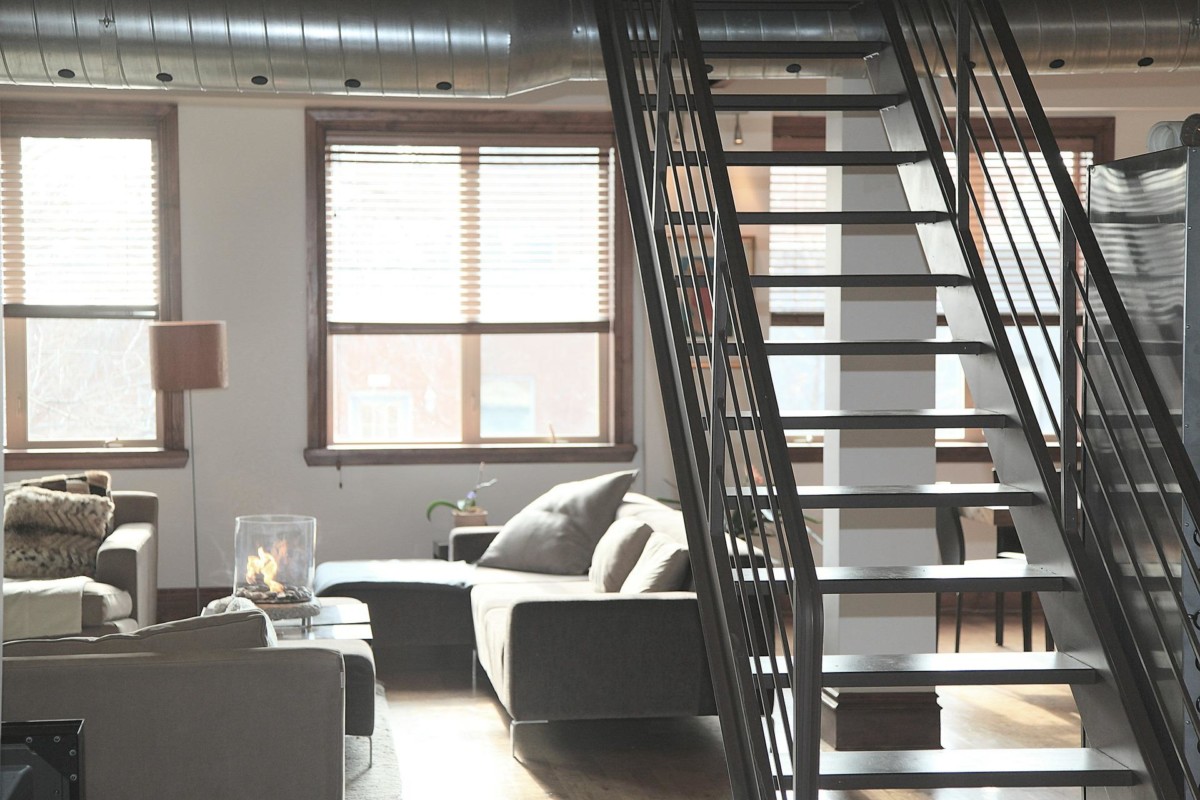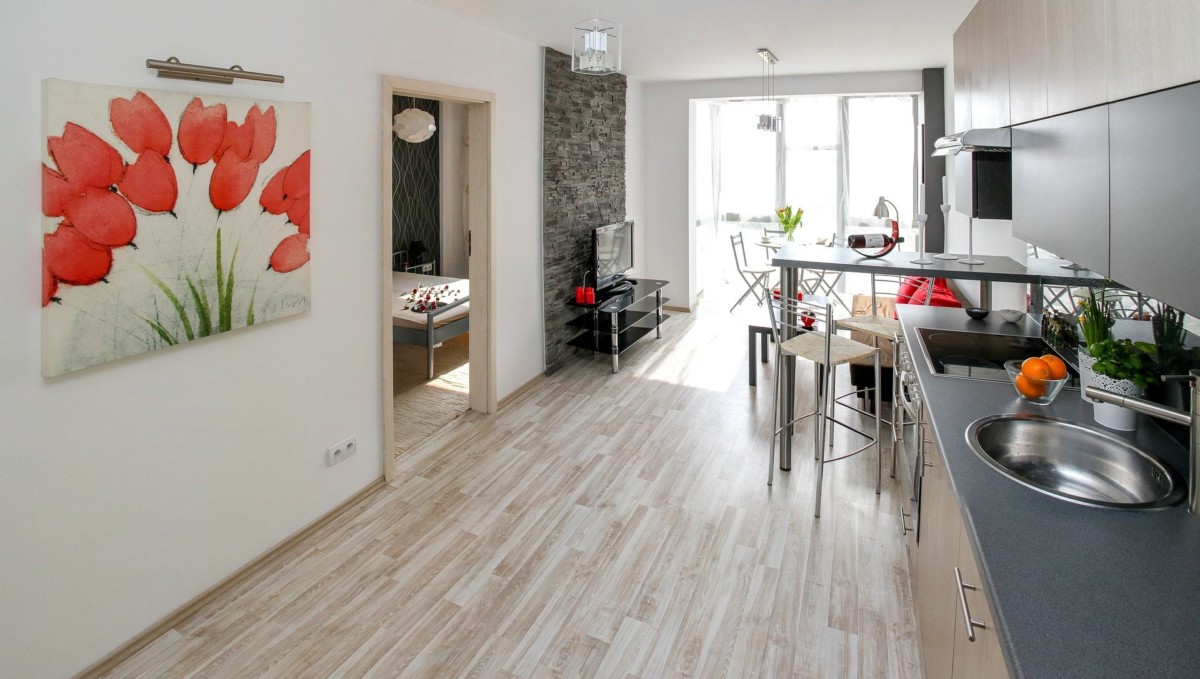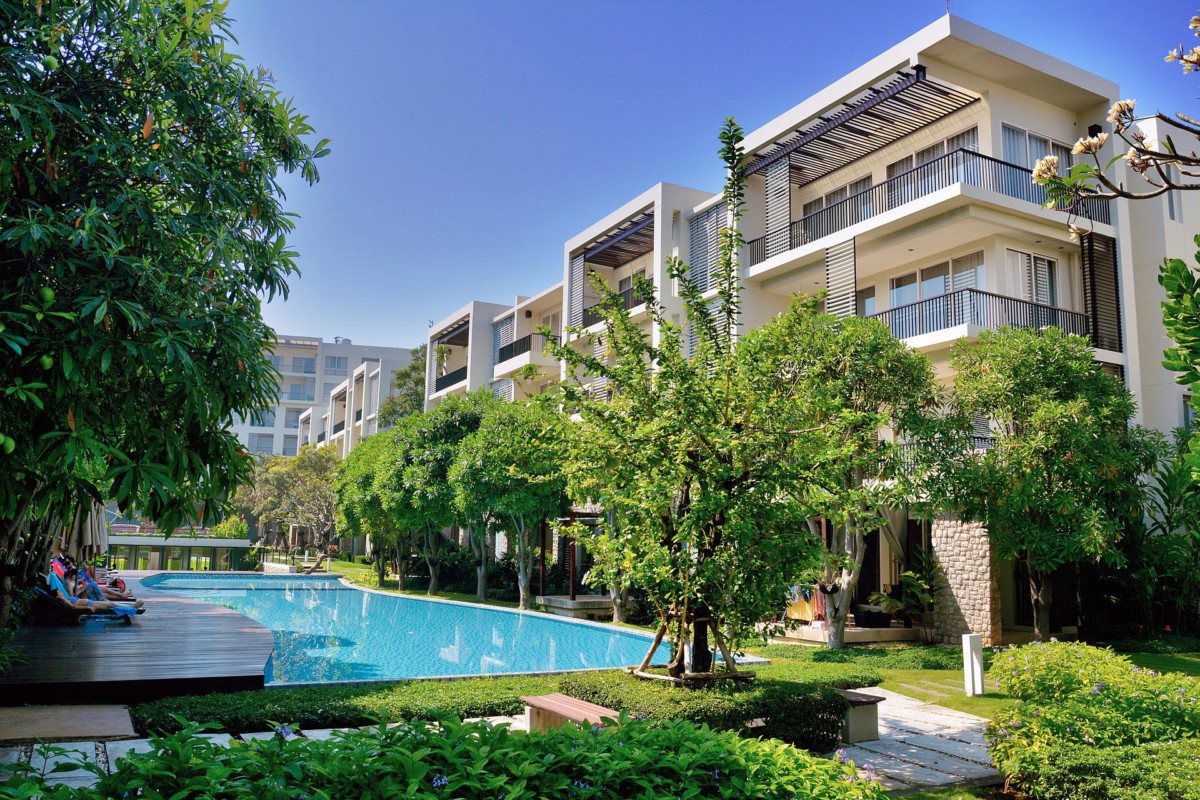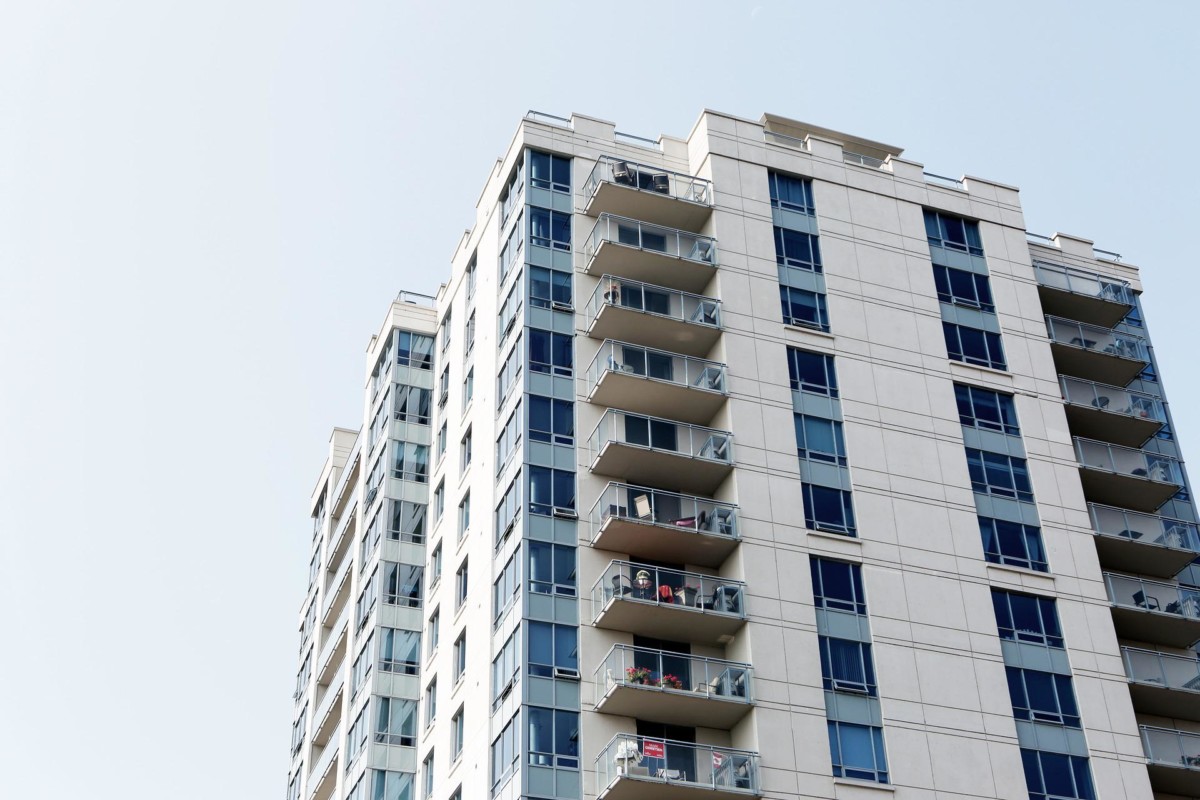You probably came across condos and apartments last time you looked for a new place to live. From the outside, it isn’t always easy to tell these two housing options apart. How can two things that seem so similar have so many differences?
A few big factors separate condos from apartments, and each option has pros and cons. Whether you’re looking for apartments in Atlanta, GA, condos in Chicago, IL, or anything in between, here’s how you can decide which one is best for you.
1. You can rent or own a condo
A condominium, or condo, is a single unit that’s part of a larger complex. Like apartments, you’ll probably share one, two, or three walls with your neighbors. But a different person usually owns each unit. This means that the inside of one condo can vary quite a bit from the interior of another nearby condo, but the exteriors will look almost identical.
Condos can be owned or rented. You can buy a condo like you would a standalone house, with a down payment and mortgage. Residents usually need to follow specific rules set by the complex’s homeowner’s association (HOA).
Some condo owners decide to turn their units into rentals. They’ll require a signed lease agreement, security deposit, and monthly rent like a property manager would in an apartment. But a tenant usually rents a condo from a single landlord. Of course, renting versus buying comes with its own pros and cons.

2. You can usually only rent an apartment
Like condos, apartments are individual units within a larger building or complex. But apartments are more likely to be owned by a company or group of investors and operated by a property management group.
One of the biggest differences between a condo and an apartment is the ability to own them. Almost all apartment complexes are made up entirely of tenants (renters).
You won’t see apartments for sale very often. If you see a “for sale” listing that looks like an apartment, there’s a good chance it’s actually a condo.
When someone does buy an apartment, the owner usually pays a monthly or annual fee to the property management company. They may also need to sign an agreement that only allows them to own the unit for a certain number of years.
3. Condos have different expenses than apartments
Since most people buy condos but rent apartments, the expenses will tally up differently:
Condo expenses
When you buy a condo, you make a down payment like you would if you bought a house. You’ll start making mortgage payments right away unless you buy the home with cash.
In some US cities, monthly mortgage payments are less expensive than rental payments for the same amount of space. On the flip side, renters won’t need to be concerned with big expenses like down payments, closing costs, and repairs.
Condo owners will also need to pay HOA fees. Dues are usually about $200-300 per month, but they can be much higher sometimes.
Condo fees go to the homeowner’s association, a group of people who help make decisions for the community. The money pays for community expenses like landscaping, security, and pool maintenance. Everyone who owns a unit in a condo building pays association fees.
When you rent a condo, you’ll pay any expenses in your lease agreement, but the landlord usually pays the HOA fees (then bundles them into the rent). In addition to the security deposit and rent, tenants usually still pay for utilities like electric, water, sewer, and garbage.
Apartment expenses
When you first move into an apartment, you’ll probably have to pay a deposit. Deposits can range anywhere from a few hundred dollars to several thousand.
If you keep your apartment in good condition, you’ll usually get all or part of your deposit back when you move out. If you damage the apartment, the property management company can use your deposit to cover repairs to your unit.
You’ll often pay for your own utility costs in an apartment, but some complexes include certain utilities in the rent. If you do pay for utilities, your bills will depend on how much of each utility you use every month.
Either way, carefully reading your lease will help you understand an apartment’s total monthly cost.

4. Different people make (and enforce) the rules
In a condo, the homeowner’s association sets community rules and standards. They’ll decide things like:
- HOA fees
- Exterior features like paint color
- Rules that limit how tenants can decorate outside
- Community quiet hours
- Dispute resolution processes
Sometimes HOA board members are fellow residents in the community, but that can vary by state and association.
On the other hand, an apartment complex is usually owned by a larger company. That corporation then hires a property manager to manage the apartment building. The building owner and manager set the rules and regulations instead of an HOA.
Along with others, these rules will include:
- Quiet hours
- Payment due dates
- Limitations that prevent tenants from changing certain features (appliances, light fixtures, and paint color are common examples)
- Pet regulations
- Proper disposal of trash, recycling, and compost
5. Apartments include free maintenance
One of the primary differences between a condo versus an apartment is who pays for and performs maintenance. In apartments, almost all repairs are free. If your faucet starts leaking or the toilet stops running, you’re off the hook. The repairs are all covered by your rent and it’s up to your landlord to fix the issue.
Preventable problems can be one exception. You might need to pay a small fee to have someone remove a hair clog from the shower or apple core from the garbage disposal.
Apartment buildings typically have assigned maintenance workers, so you won’t need to find a repairperson yourself. Management will simply send one to your unit as soon as they’re available.
When you own a condo, you’ll have most of the control over repairs. Condo owners will need to find their own contractors to perform the repairs and pay for them out of pocket.
Although condo repairs can certainly stretch a budget, there’s one perk: private contractors tend to take less time to visit the home. You might even be able to schedule a same-day visit. Alternatively, apartment repairs can take days or even weeks to complete since one or two handypeople could be responsible for the entire complex’s repairs.
6. Condos may give renters more negotiating power
When you rent a condo, there’s a good chance you’ll work with a landlord who manages one or a handful of properties instead of an apartment management group. This can give you a better shot at negotiating the details of your leased property and lease agreement.
People who rent directly from the condo owner often have more wiggle room on things like monthly rent, rent terms, pet policies, and property updates. Sometimes, your landlord will live in the same condo complex, allowing you to form a more personal relationship over time.
Apartments can include tens or hundreds of units under the same management. That could give you less power to negotiate the terms of your lease, but it also means you’ll hardly (if ever) be in the spotlight. For some tenants, that’s worth the trade-off.
7. Apartments may be more predictable
On average, renting an apartment tends to be a little more predictable than renting or owning a condo.
You can form a pretty good mental picture of life in a particular apartment based on that building’s online ratings and reviews. You can also post on local apps or message boards asking current or former tenants for their opinions. If the complex is still under the same management, this gives you insight into the way everything is run.
If you rent a condo, the expectations aren’t as straightforward. You might be able to find feedback about the overall condo complex, but it’ll be hard (or impossible) to find that information from former tenants, since each unit may have a different landlord.
You can always take any concerns directly to your landlord before signing a lease, but it’s up to them to stick to their word once you’re living in the unit.

8. Amenities can vary with both
While one apartment complex has a doorperson, state-of-the-art fitness center, and rooftop deck, another has a sprawling swimming pool, scenic views, and modern security features. The same goes for condos. One complex might stick to the basics while the other has more bells and whistles.
No matter what, you can almost always count on one thing: paying a higher rent when a complex has more amenities.
9. There are different types of condos and apartments
You might be surprised by how many different types of apartments and condos there are. These dwellings come in several shapes and sizes:
Common types of condos
- Common elements condo
- Freehold condo
- Leasehold condo
- Phased condo
- Standard condo
- Vacant land condo
- Co-op
Common types of apartments
- Studio apartment
- Efficiency apartment (also called a micro-apartment)
- Loft apartment
- Low-rise, mid-rise, or high-rise apartment
- Garden apartment
- Walk-up apartment
- Penthouse apartment
- Luxury apartment
- Co-op

10. Condos and apartments both have pros and cons
Each option has certain perks and drawbacks. Try to take these factors into consideration before you choose which type of home to live in:
Condo pros
There are many benefits to owning a condo, such as:
- More freedom to personalize your home
- More say over community rules and spaces
- Ability to address maintenance concerns yourself
- Ability to sell your condo when you move out
- HOA pays for most exterior condo maintenance
- Build equity through homeownership
When you rent a condo, you may:
- Have more freedom to customize the home’s interior
- Get to know the property owner better
- Have more negotiating power in the lease
- Rent a different unit in the same complex if you don’t like the current landlord
Condo cons
Condos aren’t perfect, though. Owners will find that:
- Maintenance can get expensive
- Arranging contractors for repairs can be time-consuming
- HOA fees can add up in a hurry
- Certain HOA rules and decisions can be frustrating
And for condo renters:
- It’s hard to know what to expect from a specific landlord
- Each condo is different inside, which could mean more features to take into consideration
Apartment pros
- Free or reduced-cost apartment maintenance
- More predictable expenses
- More amenities, in many cases
- All tenants usually follow the same rules
- More information available about the property and management
Apartment cons
- No return on your investment when you move out
- Management may be less likely to negotiate rent or other parts of the lease agreement
- More restrictive rules regarding maintenance, pets, and property updates
Condo vs. apartment: A side-by-side comparison
| Condo | Apartment | |
|---|---|---|
| Owned or rented | Both | Rented |
| Owner | If owned: You
If rented: Landlord |
Apartment building owner |
| Costs involved | If owned: Down payment, mortgage payments, HOA fees, utilities, maintenance
If rented: Security deposit, rent, utilities, pet fees |
Security deposit, rent, utilities, pet fees |
| Maintenance | If owned: You pay all expenses (HOA covers some exterior maintenance)
If rented: Landlord pays expenses |
Apartment management pays for all or most expenses |
| Common amenities | Community room, shared green space, swimming pool | Community room, fitness center, garden, gated entrance, swimming pool |
| Shared walls | Yes | Yes |
| Who makes the rules? | If owned: HOA
If rented: HOA and landlord |
Apartment management |
| Builds equity | If owned: Yes
If rented: No |
No |
The post Condo vs. Apartment: 10 Differences Every Renter or Owner Should Know appeared first on Redfin | Real Estate Tips for Home Buying, Selling & More.
